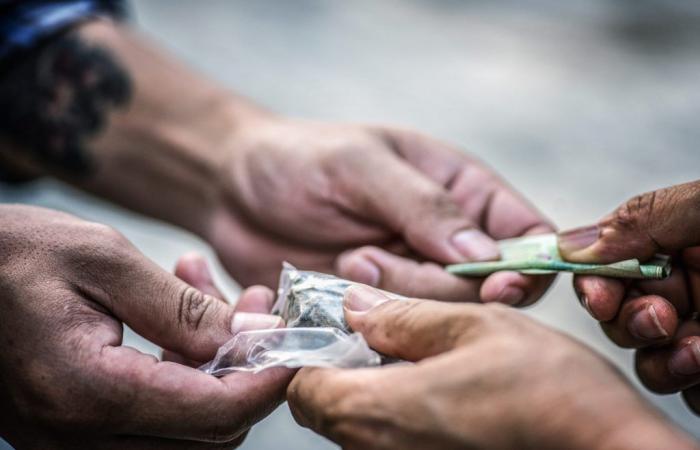
The defendant, 23, was arrested while selling cannabis at the foot of a city where the courts had already banned him from appearing. Presented for immediate appearance, Mr. H. explains that he wanted to collect a little money to go to the funfair.
The hearing begins with a request for a nullity: Mr. H.’s lawyer assures that in police custody, “the police made every effort to ensure that there was no lawyer”. The statement makes the prosecutor jump but the defense maintains. She explains that the officials called one of her former colleagues, who is no longer a lawyer today, and told them, without them trying to contact the right person. Results: a hearing report “riddled with false information, which is detrimental to my client”. The representative of the prosecution assures, for her part, that the obligation of means has been fulfilled and that “no one is required to do the impossible”!
Without even looking at his two assessors, the chairman of the session announced “that after deliberating (sic), the court joins the incident to the merits” and moves on to the facts. Mr. H., 23 years old, was walking in circles at the foot of a housing estate in Vitry-sur-Seine, observed by the police. The police see him heading towards a black plastic bag buried in a corner. He takes out a bag and goes to meet an individual with whom he exchanges the bag for a bank note. The youthful-looking young man was arrested at that moment, with a wad of banknotes on him and an electronic bracelet on his foot. In the black bag that was concealed were 47 grams of cannabis.
“What are you telling us today?”
— (After long seconds) I am guilty.
– Why did you do that ?
— Comment ?
– Why did you do that ?
— To make money.
— Why return to the city where you are banned from appearing?
— To make some money. A friend and I were supposed to go to the Foire du Trône. I said to myself, I’m going to make some money.”
Looking haggard, Mr. H. needs a little more time than normal to understand what is being asked of him – he is epileptic and has mainly suffered from head trauma caused by fights. He admits to having sold cannabis and that all the money he had on him came from the sale. But he disputes the acquisition – which requires funds – and assures that someone he does not know supplied it.
“He admitted the acquisition in police custody,” underlines the president of the court.
“Hence the importance of the nullity,” retorts the defense.
The personality examination is brief: Mr. H. has no job but a few mentions on his record (drug trafficking, violence) and from time to time he trains teenagers in a football club on a voluntary basis.
On the side of the public prosecutor, we see that “Mr. H. is not the head of the network, he is at the bottom, he is the one who sells and the one who gets caught! We would prefer to catch the sponsors but the sellers also participate in the traffic.” The prosecutor recalls that the defendant already has several entries in his record, that he was arrested in a place where he had no right to be and she requires twelve months in prison including six months closed with a committal warrant and the remains suspended.
The defense warns of the “spiral of delinquency” in which his client finds himself, without income and recognized as an 80% disabled worker. She contests the charges of acquisition – Mr. H. does not have the money to buy – and of detention – Mr. H. had nothing on him at the time he was arrested. The defense assures that the defendant’s family is present to support him: several of his relatives are seated in the front row of the public and, above all, his brother promises to hire him at minimum wage in his company in Mayenne and to accommodate him. “You will not have to see him again in your jurisdiction,” promises the lawyer.
The court rejects the request for nullity but acquits Mr. H. of the acquisition charges. He was found guilty of the rest and sentenced to one year in prison, including three months with continued detention and the rest suspended, accompanied by an obligation to work and a ban on going to Vitry-sur-Seine. By making himself available to the escorts, Mr. H. sends kisses to the front row of the audience.





